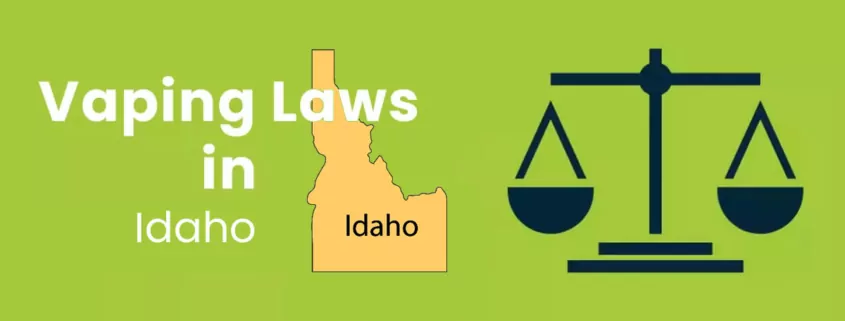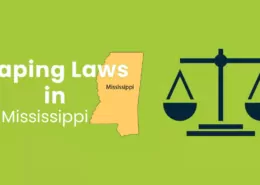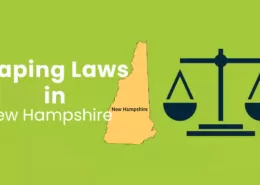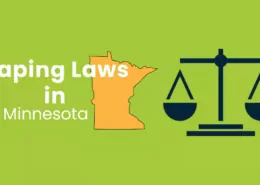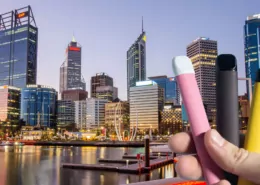Vaping Laws in Idaho: Age, Tax & Public Use Guide
Idaho, known for its rugged wilderness and independent spirit, maintains a distinct approach to regulating vaping products, including e-cigarettes, vape pens, and e-liquids. While federal laws provide a baseline, the Gem State has its own set of rules that consumers, retailers, and manufacturers must navigate.
As of mid-2025, Idaho’s vaping laws primarily focus on age restrictions, public use in certain sensitive areas, and taxation, with a notable absence of statewide flavor bans or comprehensive retailer licensing specific to vapes beyond general tobacco permits. This guide provides an in-depth look at Idaho’s current vaping laws, helping you understand what’s legal, what’s restricted, and what it means for those involved with vaping in the state.
The Legal Foundation of Vaping Laws in Idaho
At the core of Idaho’s approach to vaping is a clear focus on preventing underage access, supported by state law that has evolved to align with federal mandates.
Defining “Electronic Smoking Device” in Idaho
Idaho law provides definitions to ensure comprehensive regulatory coverage. While specific statutory language can be found in the Idaho Statutes, Title 39, Chapter 57 (Prevention of Minors’ Access to Tobacco Products), an “electronic smoking device” generally encompasses any device that can be used to deliver nicotine or other substances to the person inhaling from the device, including, but not limited to, an electronic cigarette, electronic cigar, electronic pipe, electronic hookah, or vape pen, and any component, part, or accessory of such a device, whether sold separately or not. This broad definition ensures that a wide range of vaping devices and consumables fall under state regulatory control, particularly concerning sales to minors.
Minimum Legal Sales Age: Strictly 21, with No Exceptions
Idaho firmly enforces a minimum legal sales age of 21 for all tobacco products, which explicitly includes all e-cigarettes, vapor products, and e-liquids. This “Tobacco 21” standard became state law effective July 1, 2020, following the passage of House Bill 549 during the 2020 legislative session. This aligned Idaho with the federal Tobacco 21 law, which took effect nationwide in December 2019.
Unlike some states that may have grandfather clauses or military exemptions, Idaho’s law is straightforward: no one under the age of 21 may legally purchase, possess, or use these products. Retailers are legally mandated to verify the age of any purchaser who appears to be under a certain age (often 27 or 30, as a best practice for ensuring compliance) by checking a valid government-issued photographic identification. Selling, distributing, or even furnishing a vapor product to anyone under 21 is a misdemeanor offense for the retailer or individual provider. Penalties can include fines and, for retailers, potential suspension or revocation of their tobacco sales permits for repeated violations.
For individuals under 21 caught possessing or using vaping products, the consequences can also include fines or other penalties as determined by local courts or authorities, though the primary enforcement focus is typically on preventing illegal sales.

Where Vaping is Prohibited in Idaho
Idaho’s approach to regulating vaping in public places is more limited at the statewide level compared to some other states with comprehensive indoor clean air acts that explicitly include e-cigarettes.
Statewide Prohibitions in Sensitive Locations
State law in Idaho primarily restricts vaping in the following locations:
- Public Schools and School Property: The use of any tobacco product, including electronic smoking devices, is prohibited in any public school building, on public school property, or at any school-sponsored event, regardless of whether it occurs on school property. This is mandated by Idaho Code § 39-5701 and related sections.
- State-Owned or Leased Buildings: While not a blanket ban on all public indoor spaces, vaping is often restricted within buildings owned or leased by the State of Idaho, similar to traditional smoking policies for state facilities.
No Statewide Indoor Vaping Ban
Unlike many states that have amended their Clean Indoor Air Acts to include e-cigarettes, Idaho does not currently have a comprehensive statewide law that prohibits vaping in all indoor public places and workplaces where traditional smoking is banned (e.g., restaurants, bars, general retail stores, private workplaces). This means that, at the state level, the decision to allow or prohibit vaping in such establishments often rests with the individual business owner or property manager.
Local Ordinances: The Potential for Stricter Rules
While statewide public use restrictions are limited, local municipalities and counties in Idaho have the authority to enact their own, often stricter, ordinances regarding vaping in public places. This can lead to a patchwork of rules across the state. For example, some cities or counties may have chosen to ban vaping in local parks, outdoor dining areas, or other specific public venues. Therefore, it is crucial for vapers to pay attention to local signage and be aware of specific city or county ordinances, as these can impose limitations beyond what state law mandates.
Ecigator is one of the well-known vape brands spun off from FM Technology Co., Ltd, it’s an ISO-certified disposable vape manufacturer for OEMs, ODMs, and OBM since 2010. The founder team comes from top firms with more than 10 years of experience in the vaping industry and has devoted thousands of hours to providing users with a better and better experience.
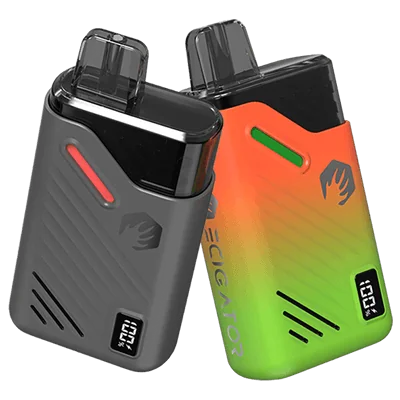
18K Disposable Pod Kit
Disposable Pod Kit – 18ml changeable pod with 650mAh rechargeable battery.
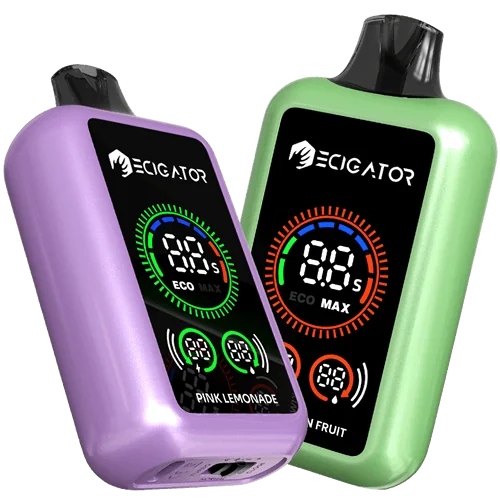
20K with Large Screen
20000 Puffs Disposable Vape with large screen. Normal and Boost working modes.
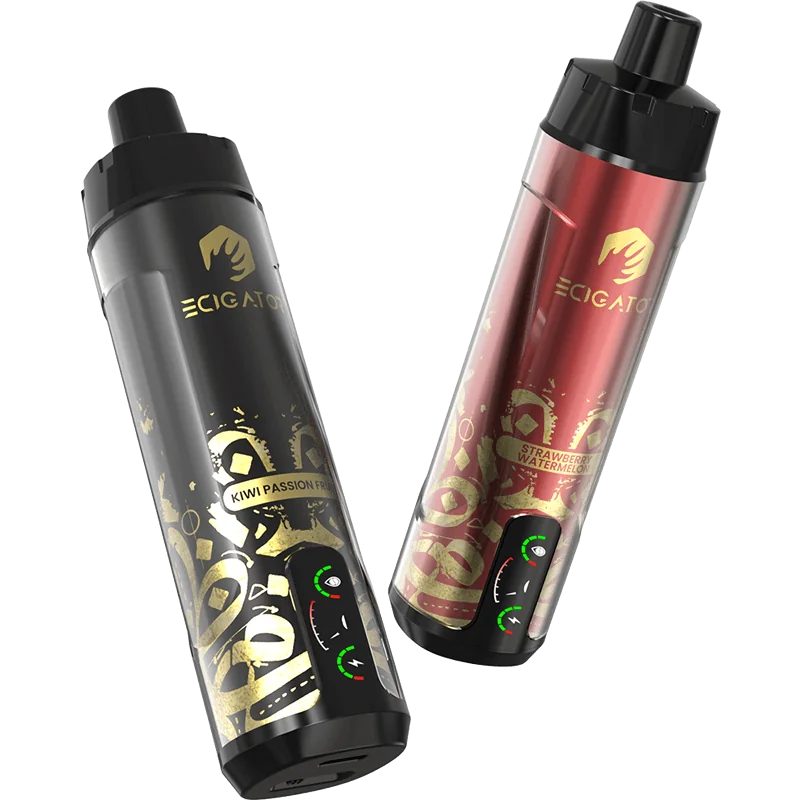
20K DTL Disposable
20K Puffs DTL(Directly to Lung) disposable vape with airflow control and screen.
Selling Vaping Products in Idaho
The sale of vaping products in Idaho is subject to specific requirements for retailers, primarily concerning age verification and general business conduct, though specialized vape shop licensing is less developed than in some other states.
Retailer Permitting (General Tobacco Sales)
Retailers selling any tobacco products in Idaho, which includes e-cigarettes and vapor products by definition for sales to minors, must obtain a tobacco permit from the Idaho State Tax Commission. There isn’t a separate, distinct “vape shop license” at the state level beyond this general tobacco permit requirement. This permit must be renewed annually.
Sales Practices and Product Handling
- No Self-Service Displays: Vapor products must generally be sold in a manner that requires a direct, face-to-face exchange between the retailer or employee and the consumer. Self-service displays where customers can directly access products without assistance are typically prohibited, except in adult-only facilities where minors are not permitted entry.
- Child-Resistant Packaging: While specific state mandates for child-resistant packaging for e-liquids were not prominently highlighted in the most recent comprehensive reports for Idaho (beyond federal requirements), it’s a common best practice and may be covered under broader product safety rules or federal FDA guidelines.
- Online Sales and Delivery: Idaho law requires age verification for online or remote sales of tobacco products, including vapes. Sellers must use a method of shipment that requires the signature of a person 21 years of age or older upon delivery.
Flavor Regulations and Product Standards
As of now (2025), Idaho does not have a statewide ban on the sale of flavored vaping products. This means that, at the state level, e-liquids with fruit, candy, menthol, or other characterizing flavors (other than tobacco flavor) can still be legally sold, provided they comply with all other applicable state and federal laws (such as FDA marketing authorization requirements).
Taxation of Vaping Products in Idaho
Idaho imposes an excise tax on “tobacco products,” and the definition for taxation purposes was expanded to include vapor products.
Effective July 1, 2020 (coinciding with the Tobacco 21 law), vapor products became subject to an excise tax of 40% of the wholesale sales price. This tax is levied on distributors at the wholesale level but is typically passed on to consumers through increased retail prices. This taxation aims to generate revenue and potentially discourage the use of these products, particularly among price-sensitive youth.

ECIGATOR
Ecigator is one of the well-known vape brands spun off from FM Technology Co., Ltd, it’s an ISO-certified disposable vape manufacturer for OEMs, ODMs, and OBM since 2010. The founder team comes from top firms with more than 10 years of experience in the vaping industry and has devoted thousands of hours to providing users with a better and better experience.
Enforcement and Penalties
Enforcement of Idaho’s vaping laws is typically handled by local law enforcement agencies and the Idaho State Police, particularly concerning sales to minors and public use violations where applicable. The Idaho State Tax Commission is responsible for enforcing tobacco and vapor product permits and tax collection.
As mentioned, penalties for selling to individuals under 21 can include fines and potential permit suspension or revocation for retailers. Minors possessing or using these products may also face fines or other sanctions. Violations of local public vaping ordinances would be subject to the penalties set forth by that specific city or county.
Conclusion
Idaho’s vaping laws in 2025 are characterized by a firm 21+ age restriction for purchase, possession, and use, aligning with federal standards. While the state imposes a significant 40% wholesale tax on vapor products, it notably lacks a statewide ban on flavored e-cigarettes and does not have a comprehensive statewide prohibition on vaping in all indoor public places comparable to stricter “Clean Indoor Air Acts” found in many other states. Public use restrictions are primarily focused on schools and certain state-owned properties, with further limitations often dictated by local city or county ordinances.
Retailers must secure a general tobacco permit and adhere to strict age verification and sales practices, including for online transactions. While there isn’t a specialized “vape shop” license beyond the tobacco permit, all sellers are bound by these rules. The absence of more extensive statewide public use bans or flavor restrictions places Idaho in a more moderate regulatory category compared to states with very stringent controls. However, all products sold must still comply with federal FDA marketing authorization requirements, which can indirectly limit the availability of many flavored products.
For consumers, retailers, and manufacturers, staying informed about both Idaho’s state laws and any applicable local ordinances is crucial for ensuring compliance. As public health discussions around vaping continue nationally and locally, Idaho’s regulatory landscape may see further adjustments in the future.
| Vaping Laws in the USA by States | ||||
| Alabama | Alaska | Arizona | Arkansas | California |
| Colorado | Connecticut | Delaware | Florida | Georgia |
| Hawaii | Idaho | Illinois | Indiana | Iowa |
| Kansas | Kentucky | Louisiana | Maine | Maryland |
| Massachusetts | Michigan | Minnesota | Mississippi | Missouri |
| Montana | Nebraska | Nevada | New Hampshire | New Jersey |
| New Mexico | New York | North Carolina | North Dakota | Ohio |
| Oklahoma | Oregon | Pennsylvania | Rhode Island | South Carolina |
| South Dakota | Tennessee | Texas | Utah | Vermont |
| Virginia | Washington | West Virginia | Wisconsin | Wyoming |
References
- Idaho Statutes – Title 39, Chapter 57 – Prevention of Minors’ Access to Tobacco Products
- Campaign for Tobacco-Free Kids – Idaho Tobacco Prevention and Control (General State Profile)
- Idaho State Tax Commission – Tobacco and Cigarette Taxes (Provides information on tax rates and permits)
- Vaping Laws in Pennsylvania: A Comprehensive Guide for 2025 - July 6, 2025
- Is Vaping While Driving Illegal in Oregon? (2025 Guide) - July 4, 2025
- Vaping Laws in Oregon: What You Need to Know in 2025 - July 4, 2025

